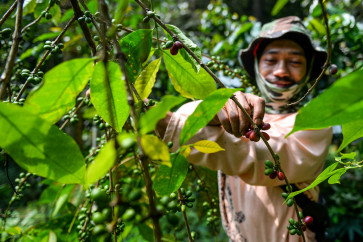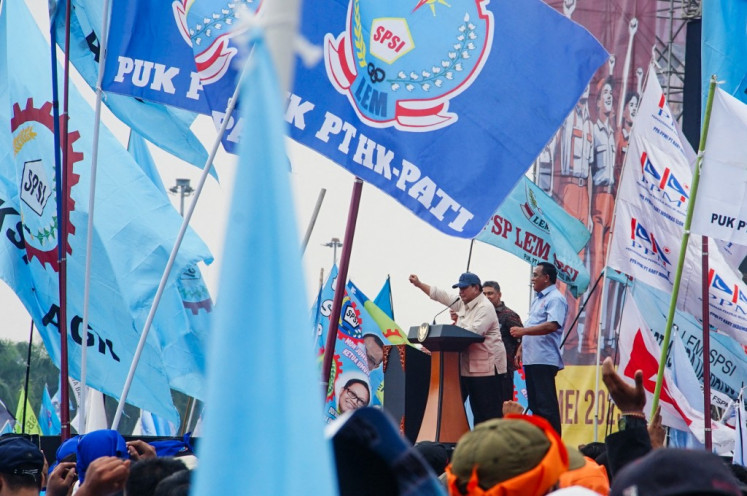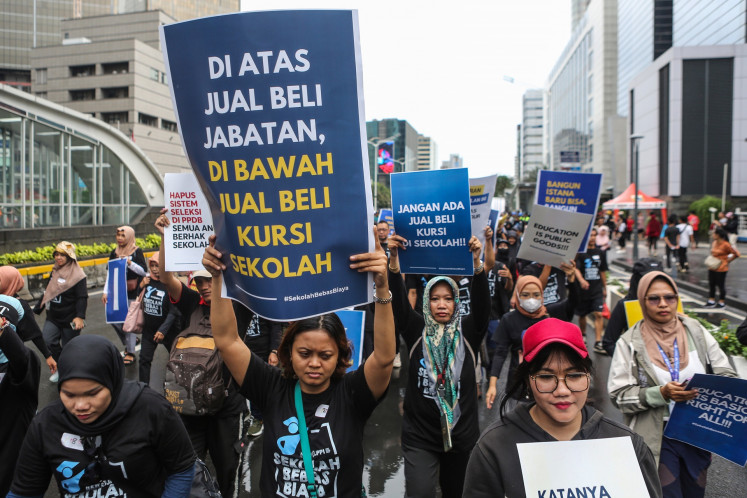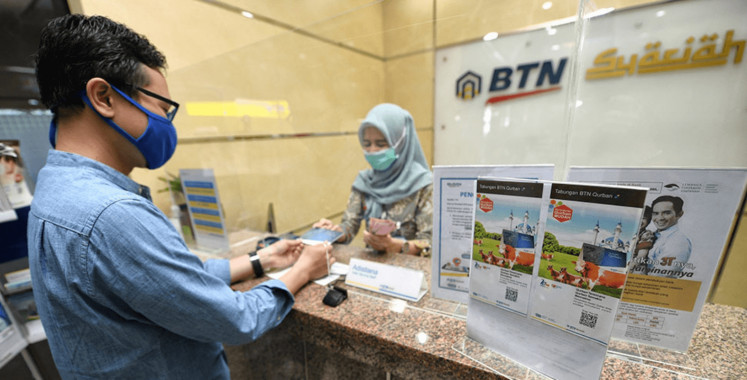RI wants Japanese commitment on smelter
The government will formally ask Japan to relocate its nickel-smelting facilities to Indonesia in a bid to end tension resulting from raw material supply disruption following the implementation of the mineral ore export ban
Change text size
Gift Premium Articles
to Anyone

T
he government will formally ask Japan to relocate its nickel-smelting facilities to Indonesia in a bid to end tension resulting from raw material supply disruption following the implementation of the mineral ore export ban.
The request would be conveyed during bilateral talks between Indonesian and Japanese officials soon, Industry Minister MS Hidayat said on Wednesday after his meeting with Japanese Ambassador to Indonesia Yoshinori Katori.
'Japan has been one of our biggest investors. We will try to listen and address the problems it faces,' Hidayat said.
It was hoped that there would be a government-to-government arrangement after the talks to ensure the smelter relocation, Hidayat added.
Indonesia, a major global supplier of key commodities such as coal, nickel, tin and bauxite, banned the export of unprocessed ores on Jan. 12 in a bid to boost its processing industry.
The policy also aims to create jobs and add value to the country's mineral resources.
Global nickel prices rallied following the ban.
The policy has had a significant impact on Japan, which is home to some of the world's leading
stainless steel producers, as it pushed up costs and it forced the industry to seek new sources of nickel supply.
Indonesia's nickel ore represents 44 percent of Japan's total needs. The rest comes from other suppliers, such as the Philippines and New Caledonia.
Some Japanese nickel producers are now carrying out feasibility studies to set up smelters in Indonesia. Employment issues, however, are a major concern, according to Hidayat.
The development of nickel smelters would benefit both Indonesia and Japan as they would combine both countries' resources ' raw material from Indonesia and investment and technology from Japan.
Ambassador Katori declined to comment on the problems both governments are trying to address.
Earlier, Japan reportedly said it would go to the World Trade Organization (WTO) if it could not find a solution to the row over the mineral export ban.
The Japanese government, according to the Nikkei daily, was due to seek talks with Indonesia through the WTO. If the issue was not resolved, Japan would request that a panel be appointed to look into the case, it added.
If the bilateral talks failed, Japan was likely to team up with China, another major buyer of minerals from Indonesia, to seek remedial action, the report said.
A senior official at Japan's Ministry of International Trade and Industry (MITI) told Reuters that no decision had been made about pursuing the issue with the WTO, but it remained a possibility.
'Bringing the issue to the WTO is one of our options, but we have not made any decisions,' said Osamu Onodera, a director of MITI, who handles WTO compliance and dispute settlements.









